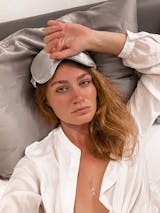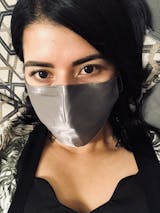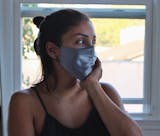In 2010 Katia Beauchamp and Hayley Barna launched the world’s first beauty subscription box, Birchbox. It was inspired by the convenience of having your own personalized box of the latest in beauty for a fraction of the cost.
Since then, many brands have followed suit, launching variations of beauty subscription boxes, and there are now dozens of competing brands in this space. And at a very high level, this business model is amazing for consumers. The investment every month is generally lower than if they were to purchase each product separately.
But what happens to the bottles and jars and sachets of products that consumers don’t end up using? I’m guessing one of two things:
- They get re-gifted.
- They end up in the trash.
In any case, receiving extra products that you probably won’t use ends up being a complete nuisance for all parties involved; you, and the planet. In this article we’ll talk about the environmental problem with beauty subscription boxes.
The Subscription Trend
Before we get into the nitty gritty of this article, I do want to mention that I love subscriptions. I think they’re a great business model, especially with all of the options we have right at our fingertips.
Today you can get a subscription for just about anything. Not only do we have our streaming services like Netflix, but we can get contact lenses, fresh produce, tampons, wine, socks, razors, seafood… the list is endless. It’s also often an affordable way to buy products—although, they can send you broke if you sign up to too many at one time.
Consumers Are Spoilt For Choice
When a person is sent a mixed bag of products that they are not familiar with, the chances that all of those products will be used to completion are slim. How many times has someone bought you a gift, perhaps some bath bombs, or a body wash that you didn’t particularly like? What did you do with it?
Chances are you put it away in the back of your bathroom cupboard, hoping to eventually find a use for it, only for it to find its way into the trash three years later. No? Just me?
As consumers, we’re pretty spoiled. We want convenience, we want it cheaper, we want to try everything, and we want it today. But we’re now at the point in time where we need to be more mindful of everything that we purchase. The choices we all make are having impacts on our environment, and our future.
The Beauty Sampling Problem
Apart from having a number of products in either full size or sample size, most of these boxes come with additional single-use samples of other products. This is really just a marketing tactic to get you to keep buying, which is an issue for anyone who has a beauty addiction *raises hand*. And this is an even bigger issue for our planet.
We already know that the beauty industry creates a lot of waste, more than most industries, just with their packaging. But the beauty sampling sector is something else. While it’s a novelty to receive samples of different products, if it’s a product we honestly won’t use—and let's be honest, there are many—what’s the point in even receiving them in the first place?
With all of the samples that get handed out, half of them never get used, and are thrown in the trash. But even if we did use them all, they’re usually a single-use item, almost always housed in plastic, and according to NPR cannot usually be recycled at most municipality recycling centers.
Non-Sustainable Brands
There are a number of subscription boxes that focus on only vegan and cruelty-free products, which is great to see. But it really frustrates me that so many of these “ethical” brands are still using virgin plastics for their products.
At Fait avec Coeur, we only partner with brands who do not use virgin plastic for 99% of their packaging, and are working towards a solution to make it 100%. So we know that it’s possible for other brands to do the same.
Petit Vour is a vegan beauty subscription box. All of the brands are vegan and cruelty-free, sure. But after going through a lot of their brand partners' websites, I noticed that most of them are still using virgin plastic packaging for their products. So, animals are not suffering to create their products, they’ll just choke on their plastic packaging in a couple of years time. Right.
If I seem bugged about this, you’d be absolutely correct. If people weren’t bugged about this, things would probably never change.
As I’ve said in past blog articles, brands that claim to be ethical and sustainable, yet are still doing nothing about their unsustainable packaging are known as “greenwashers”. They distract the audience with cruelty-free claims, their "clean" ingredients, and they may even mention that they are “sustainable”. But if you dig a little deeper, you see it’s all a fallacy. Brands need to be actively taking steps to implement more sustainable packaging in their product lines, otherwise those words mean nothing.
Moving on.
The Cost of Freight
When I think about the convenience of having things delivered right to my door, I think about how many hands my product passes through to get to me. How many trips it takes to arrive at my door.
If it’s a local supplier, like a farm sending you hand-picked produce, the route from farm to door is a lot shorter than a beauty subscription box that offers 300 different brands, and is located across the other side of the country. Just how many hands put your beauty box together? Did each product come from a different source? Absolutely.
While there’s no exact data on this, in 2015, the emissions from the transportation sector accounted for 27% (almost a third) of greenhouse gas emissions in the U.S. 40% of that number came from commercial sources, like freight trucks. With the way we are shopping online today in 2021, there’s no doubt in my mind that that percentage has increased exponentially.
One could argue that any retailer like Sephora, Ulta, and Yours Truly face the same challenges. But in our case, we aren’t pushing boxes of random unsustainable products to our consumers, and we certainly don’t send single-use samples to them either. We hand-select our brand partners based on meticulous standards so our customers receive only the best products for themselves and our planet.
As I mentioned before, the subscription model is terrific for consumers as it saves them a little money each month and it is incredibly convenient. This is why we do offer subscriptions here at Fait avec Coeur. The difference, though, is the subscriptions are for the products that you specifically want. So there is never any risk of you receiving products you won't use, and you'll still get your favorite items at a lower price point.
5 Beauty Brands Nailing Sustainable Packaging
While there are many brands out there claiming to be sustainable when, really, they’re not, we want to highlight a few brands that truly are sustainable and ethical. Brands who take responsibility, from their sourcing of ingredients, to manufacturing, right through to the packaging and transportation of their products.
Axiology
Axiology is a makeup brand who created the industry’s first zero-waste 3-in-1 makeup crayons called Balmies. They can be used on the eyes, lips, and cheeks for a dewy pop of color.
Three reasons why we love Axiology:
- Their products are formulated with less than a dozen ingredients, 99% of them natural.
- Their packaging is made from 100% recyclable paper, making it a zero-waste product.
- The paper casings come from a collective of women who salvage the paper from landfills in Bali and recycle it into products for brands. We love brands that #SupportWomen.
Āthr Beauty
Another innovative leader in sustainable makeup is Āthr Beauty. They designed the industry’s very first zero-waste eyeshadow palette.
Three reasons why we love Āthr Beauty:
- They source their ingredients sustainably and ethically, and are completely transparent, never compromising their values for an ingredient.
- The palettes are made from only aluminum and FSC certified paper, both materials 100% recyclable. The palettes don’t have mirrors or magnets as these materials are non-recyclable.
- They use real life crystals in their formulas, like topaz and diamonds because of their skin benefits, as well as being sparkly.
Earth Harbor
This brand really resonated with me because they are incredibly committed to the ocean, something that, as an Aussie, is in my DNA. I also adore their founders' amazing story of how they started.
Three reasons why we love Earth Harbor:
- They are members of PETA®, Leaping Bunny®, Climate Neutral®, Sustainable Forestry Initiative®, Think Dirty® certified, 1% For The Planet®, Campaign for Safe Cosmetics™, Truth in Labeling™, and Independent Beauty Association®—phew!
- Over 95% of their product packaging consists of endlessly recyclable glass, and they have begun using upcycled ocean-bound plastic, ocean waste plastic, and/or post-consumer resins for things like the lids and pumps of their bottles.
- The founder Ali used to live in a fully-sustainable treehouse—what a Sustainable Baller!
UpCircle Beauty
Perhaps one of the only brands in the world doing what they do is UpCircle Beauty. They take discarded food and beverage byproducts, like coffee, chai spices, argan, and dates, and they upcycle them into skincare products.
Three reasons why we love UpCircle Beauty:
- Their ingredients are almost 100% natural, and incredibly effective—most of their range are best sellers.
- Their packaging is almost 100% plastic-free, most of it being glass, and all of it being recyclable.
- UpCircle is their name, and circularity is their game. They salvage food and beverage byproducts and give them new purposes in a completely different industry. I mean, if that isn’t the most sustainable sentence in the world, then I’ll be a monkey’s... aunty.
DEW MTY
Lastly, we have DEW MTY, another one-of-a-kind skincare brand. Their founder, Tiffany, designed the industry’s first 5-in-1 waterless serum bar.
Three reasons why we love DEW MTY:
- The serum bar is formulated using the best of nature and science combined, with ingredients like jojoba, coconut oil, hibiscus, squalene, and vitamin C.
- The serum bar replaces face serums, face oils, lotions, moisturizers, and hair serums, eliminating the need for excessive products.
- The packaging it comes in is compostable paper, and it also comes with an aluminum canister to store your serum bar.
Conclusion
I often wonder how many of us stop and think about if we really need a subscription to something. I know many of my friends who have tried different brands of beauty subscription boxes, and their feedback was usually the same. “I don’t need most of the products they sent me”, or “I didn't even use half of the products in the box”, or “they sent samples of products I’ll never use”.
While it’s incredibly convenient, it may just work out to be better for you and the planet to just buy the products you like and you need. Mindfully purchasing beauty products is just one way we can fight the war on packaging together.
Emma Masotti is an Australian now living in Austin, TX, and has been a trained esthetician for over 15 years. She is a sustainable skincare writer, educating and building awareness around proper skin health that doesn’t cost the earth.
Some of the products promoted in our blog are from our online store. Many others are brands we have researched and found to be great examples of sustainable, ethical, and innovative brands in their field, and we don't make any profit from mentioning them in our blog. #CollaborationOverCompetition
References
1. https://twindly.com/blog/2019/05/one-ugly-fact-about-samples-the-beauty-industry-wants-you-to-forget/
2. https://apps.npr.org/plastics-recycling/
3. https://www.petitvour.com/
4. https://livegreen.recyclebank.com/column/because-you-asked/how-eco-friendly-are-subscription-services










